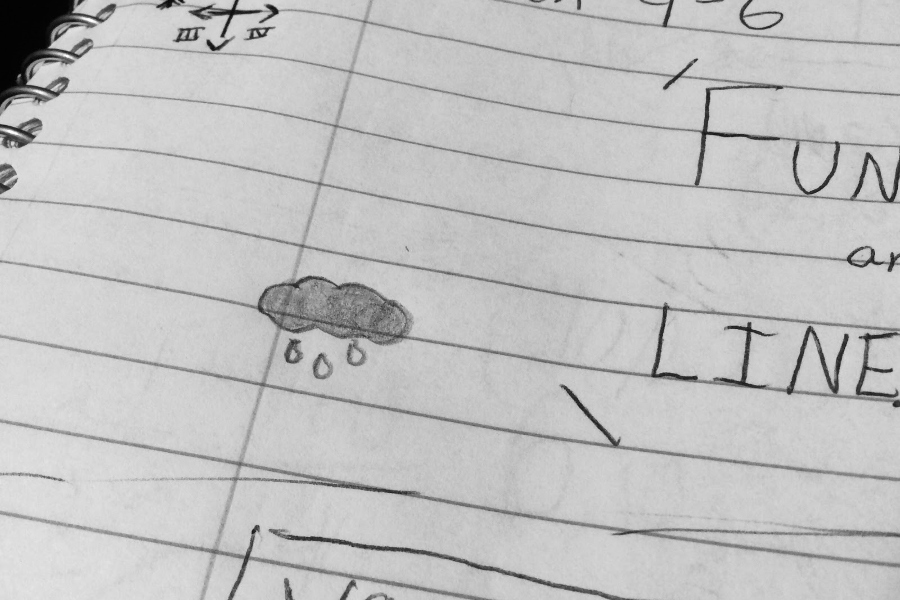Depression: Not Just A Fancy Word For Feeling “Bummed Out”
“There are times when explanations, no matter how reasonable, just don’t seem to help.” – Fred Rogers
Depression is one of the most commonly known forms of mental health disorders, but it can also be very commonly overlooked or misunderstood. Depression is not always endlessly crying and feeling sad all the time. It can be getting up in the morning, going to school and smiling around everyone and doing what needs to be done all while feeling a sort of emptiness inside. Depression in teens and kids usually looks different than depression in adults. A person with depression can look and seem completely happy and ‘normal,’ and that is what makes most people have a false idea of what depression really is. Depression is an awful mental health disorder that can cause a loss of motivation for interests and hobbies, change an appetite whether it is an increase or decrease, and many more changes that can affect a person in an extreme way. Society needs to learn more ways to notice and help people who suffer from it not be ashamed to talk about it.
To start, depression has many signs and symptoms and it is important to know some of the commonly known ones:
- Tired-looking/Fatigued
- Loss of energy
- Irritability/Easily stressed
- Struggle to be excited
- Change in appetite (increase or decrease)
- Loss of motivation
- Lack of interests in hobbies
These symptoms do not apply to all people who struggle with depression, but these are very common. Just because a person looks or acts happy and outgoing does not mean they do not have depression, or that their depression is not that bad. Some people with depression can feel numb the majority of the time rather than sad. This means they may not feel sad or cry often, because of a numbness that their depression causes.
Additionally, many people see depression as another form of laziness; however, they are both completely different. Laziness is a choice, while depression is not. A lazy person would say, “I’ll clean my room tomorrow because I don’t want to do it now, even though I have the motivation and energy to do so.” However, someone who is depressed would say, “I’ll clean my room tomorrow because even though I want to clean it now, I don’t have the energy or motivation.” The word ‘lazy’ is often thrown around as a common and unintentionally harmful word, but it can have a negative effect if said to a person with depression. If a depressed person is being called lazy, their depression can get worse because they may start believing that they are. Society needs to start being more aware that a word as simple as ‘lazy’ can have a negative impact when said to the wrong person.
Furthermore, it can be hard to deal with depression, but it is not impossible. One way to combat depression is to stay in touch with people. Face-time, text, call, or go out somewhere with a friend. Get moving, in a traditional way or not. Go to a local gym, jog, or play a sport. There are also domestic ways to get active such as playing a favorite song and dancing, going for a bike ride or a walk. Going outside to get fresh air and sunlight can also help, as well as eating something preferably healthy. Skipping meals can be harmful for physical health, which can possibly damage mental health later on. One of the most reliable ways of dealing with depression is going to get professional help. Talk to a doctor or go see a therapist, and they may have even better ways to help.
Above all, not everybody battles with depression; however, the majority of those people most likely know somebody who does. It is important for people to know how to help. Try talking about their depression with them, and express any concerns if there are any. Never tell a depressed person any of the following:
- Think positive
- It could be worse
- Get over it
- You don’t look depressed
- Everyone goes through tough times
- You’re just lazy
Although this may be intended to be helpful, these common sayings can make depression worse. Do not always try to relate to what the person is going though, just be there and listen to them. In addition, try to notice any signs of self harm or suicidal thoughts. Although not every person who has depression is suicidal, it is common. If there are signs of self harm, do not keep it a secret no matter what. Speak up and tell somebody who can help, because something as simple as speaking up can save a life.
Depression comes in all shapes and sizes, and it is important to be able to recognize the symptoms. It can also be a challenge for people to figure out what causes their depression. Sometimes there is not always a clear answer to why a person is depressed, and it can take a while to solve the puzzle. Nobody is alone in their battle against depression, and there will always be help somewhere. And as more awareness is brought to it, there will be even more people who can help.
If you or someone you know struggles with any form of mental illness such as depression, talk to a school counselor or contact NAMI (National Alliance on Mental Illness). NAMI’s helpline is 800-950-NAMI (9264) M-F 10a – 6p, or in a crisis, text “NAMI” to 741741 for 24/7 confidential, free crisis counseling. Visit them at www.nami.org. The National Sucide Prevention number is 800-273-TALK and is also available 24/7.




